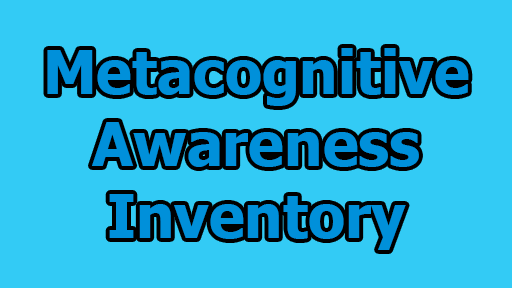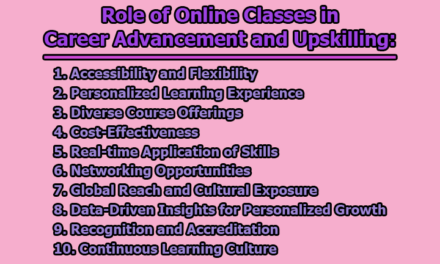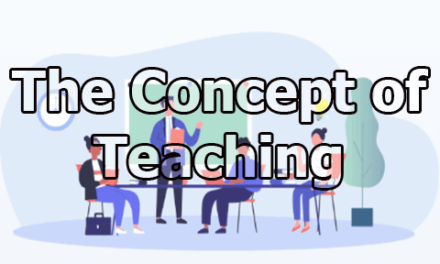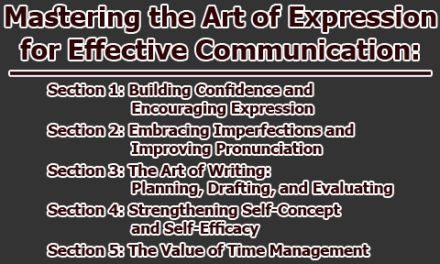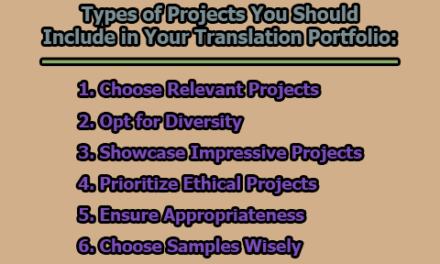Metacognitive Awareness Inventory:
Metacognition refers to the awareness and understanding of one’s own thought processes and cognitive abilities. It involves the ability to reflect on and regulate one’s thinking, learning, and problem-solving strategies. The Metacognitive Awareness Inventory (MAI) is a valuable tool for assessing an individual’s metacognitive abilities. This inventory comprises various statements that address different aspects of metacognition, ranging from goal setting and strategic planning to self-assessment and adaptation. In this article, we will explore each statement, discussing its significance in the context of metacognition and how it can contribute to enhanced learning and problem-solving. By consistently evaluating and improving our metacognitive skills, we can become more efficient learners, critical thinkers, and self-regulated individuals.
1. Ask Myself Periodically Whether I am Meeting My Goals: Setting clear and specific goals is essential for effective learning. Regularly assessing our progress toward these goals helps us stay on track and make necessary adjustments. By asking ourselves periodically whether we are meeting our objectives, we ensure that we remain focused and motivated.
2. Try to Consider Several Alternatives to a Problem before Providing an Answer: Metacognition encourages us to avoid rushing to conclusions and instead explore multiple solutions to a problem. This approach fosters critical thinking and creativity, as it allows us to weigh the pros and cons of various alternatives before arriving at the most appropriate answer.
3. Try to Use Strategies That Have Worked in the Past: Drawing from our past experiences and successes can be a powerful learning strategy. Metacognition involves recognizing the effectiveness of certain approaches and employing them in relevant situations to optimize our learning outcomes.
4. Understand My Intellectual Strengths and Weaknesses: Awareness of our intellectual strengths and weaknesses allows us to capitalize on our strengths and work on improving areas of weakness. By acknowledging these aspects, we can tailor our learning strategies and seek support when needed.
5. Try to Think About What I Really Should Learn Before I Begin a Task: Before starting a learning task, it is essential to identify the key concepts and information that need to be acquired. Metacognition enables us to focus on the essential components of a task, making our learning more efficient and purposeful.
6. Know How Well I Did Once I Finish a Task: Assessing our performance after completing a task provides valuable feedback for future improvement. By evaluating our outcomes, we can identify areas of success and areas that require further attention, promoting continuous growth.
7. Set Specific Goals Before I Begin a Task: Setting specific and measurable learning goals enhances motivation and direction. Metacognition encourages us to establish clear objectives before undertaking any learning endeavor, leading to better organization and focused efforts.
8. Know What Kind of Information is Most Important to Learn: Discerning the most critical information from the less relevant details is a metacognitive skill that aids in efficient learning. Prioritizing essential content ensures that we allocate our time and energy effectively.
9. Ask Myself Whether I Have Considered All Options When Solving a Problem: Metacognition prompts us to be thorough in our problem-solving approach by questioning whether we have explored all possible solutions. This self-inquiry prevents overlooking potential answers and fosters a more comprehensive analysis.
10. Good at Organizing Information: Effective organization of information enhances comprehension and retention. Metacognition involves utilizing strategies such as categorization, mind maps, and outlines to structure knowledge, making it easier to recall and apply.
11. Consciously Focus My Attention on Important Information: Maintaining focused attention on relevant information is vital for effective learning. Metacognition enables us to identify and concentrate on the most critical aspects of a subject, reducing distractions and information overload.
12. Have Specific Purpose for Each Strategy I Use: Metacognitive individuals have a purpose for each learning strategy they employ. This purposeful approach ensures that learning techniques align with the learning goals, optimizing the learning process.
13. Try to Learn Best When I Know Something About the Topic: Prior knowledge serves as a foundation for new learning. Metacognition encourages us to activate and connect existing knowledge with new information, facilitating better understanding and retention.
14. Good at Remembering Information: Metacognition involves employing memory strategies, such as mnemonics or visualization techniques, to enhance recall. Remembering information efficiently contributes to more comprehensive learning.
15. Use Different Learning Strategies Depending on the Situation: Flexibility in learning strategies is a hallmark of metacognitive awareness. Adapting our approach based on the nature of the task and our learning preferences ensures that we optimize our learning outcomes.
16. Try to Summarize What I Have Learned after I Finish: Summarization is a metacognitive strategy that reinforces learning by condensing and organizing information. Summarizing what we have learned helps us internalize the material and identify any gaps in understanding.
17. Ask Others for Help When I Don’t Understand Something: Seeking help from others when facing challenges in learning is a sign of metacognitive maturity. Consulting peers, teachers, or mentors allows us to gain additional perspectives and insights, leading to better comprehension.
18. Motivate Myself to Learn When I Need To: Metacognition involves self-regulation, which includes motivating oneself to learn and persist in the face of difficulties. Cultivating a growth mindset encourages continuous learning and resilience.
19. Aware of What Strategies I Use When I Study: Metacognition involves being conscious of the learning strategies we employ. This self-awareness allows us to evaluate the effectiveness of our approaches and make adjustments when necessary.
20. Try to Find Myself Analyzing the Usefulness of Strategies While I Study: Metacognitive individuals critically evaluate the effectiveness of their learning strategies. By analyzing the usefulness of these approaches, we can refine our methods and discard less productive ones.
21. Use My Intellectual Strength to Compensate for My Weakness: Recognizing our intellectual strengths can help us overcome challenges in areas of weakness. Metacognition empowers us to leverage our strengths to fill gaps in understanding and improve overall learning.
22. Focus on the Meaning and Significance of New Information: Understanding the context and significance of new information deepens learning. Metacognition involves reflecting on the relevance of information and how it relates to existing knowledge.
23. Create My Own Examples to Make Information More Meaningful: Generating personal examples or connections aids in information processing. Metacognition encourages us to create meaningful associations, making learning more relatable and memorable.
24. Good Judge of How Well I Understand Something: Metacognition involves accurate self-assessment of our understanding. Being aware of our comprehension level allows us to identify areas that need further exploration or revision.
25. When I Use Each Strategy, I Know When It Will Be Most Effective: Effective metacognition includes recognizing the optimal situations for employing specific learning strategies. Tailoring strategies to suit the task or content maximizes their impact on learning.
26. Draw Pictures or Diagrams to Help Me Understand While Learning: Visual aids enhance comprehension and retention. Metacognition promotes the use of visual representations to reinforce learning and clarify complex concepts.
27. Change Strategies When I Fail to Understand: Flexibility in adapting learning strategies is key to metacognition. When faced with challenges, metacognitive individuals are willing to modify their approaches to overcome obstacles and promote understanding.
28. Use the Organizational Structure of the Text to Help Me Learn: Understanding the structure of a text aids in extracting key information efficiently. Metacognition involves utilizing text organization to navigate content and identify crucial points.
29. Read Instructions Carefully Before I Begin a Task: Metacognition emphasizes careful reading and comprehension of instructions. This practice reduces the likelihood of errors and ensures that the task is approached correctly.
30. Ask Myself Whether I Am Relating My Reading to What I Already Know: Connecting new information with existing knowledge strengthens learning. Metacognition involves actively making connections between prior knowledge and new content to foster a deeper understanding.
31. Re-evaluate My Assumptions When I Get Confused: Metacognitive individuals are willing to question their assumptions and beliefs when faced with confusion. This open-minded approach allows for a more accurate understanding of concepts.
32. Organize My Time to Best Accomplish My Goals: Time management is an essential aspect of metacognition. By organizing our time effectively, we can allocate sufficient attention and effort to each task, leading to more efficient learning.
33. Learn More When I Am Interested in the Topic: Intrinsic motivation significantly impacts learning outcomes. Metacognition acknowledges the influence of interest in learning and encourages us to explore ways to foster curiosity and engagement.
34. Learn Things by Breaking Them into Smaller Steps: Chunking information into smaller, manageable parts aids in comprehension and retention. Metacognition involves dividing complex tasks or concepts into more accessible segments for better learning.
35. Focus on Overall Meaning Rather Than Specifics: Metacognition encourages us to prioritize understanding the main concepts and themes before delving into specific details. This approach fosters a deeper comprehension of the subject matter.
36. Ask Myself Questions About How Well I Am Doing While I Am Learning Something New: Regular self-assessment during learning is crucial for metacognition. By continuously questioning our progress and understanding, we can address knowledge gaps and adjust our learning strategies.
It is apparent that Metacognitive Awareness Inventory provides valuable insights into an individual’s metacognitive abilities, offering a framework to enhance learning, problem-solving, and self-regulation. By adopting metacognitive strategies, individuals can set specific goals, evaluate their progress, and adapt their approaches to optimize learning outcomes. Emphasizing self-reflection, strategic thinking, and mindful learning, metacognition empowers individuals to become more effective learners and critical thinkers in both academic and real-life settings. Regularly evaluating and improving metacognitive skills can lead to a more profound understanding of subjects and greater success in achieving personal and academic goals.
Reference:
Vinitha G. (2016). Cognitive Strategies Influencing Academic Achievement of Higher Secondary School Students. INFLIBNET Centre. http://hdl.handle.net/10603/137839

Library Lecturer at Nurul Amin Degree College

